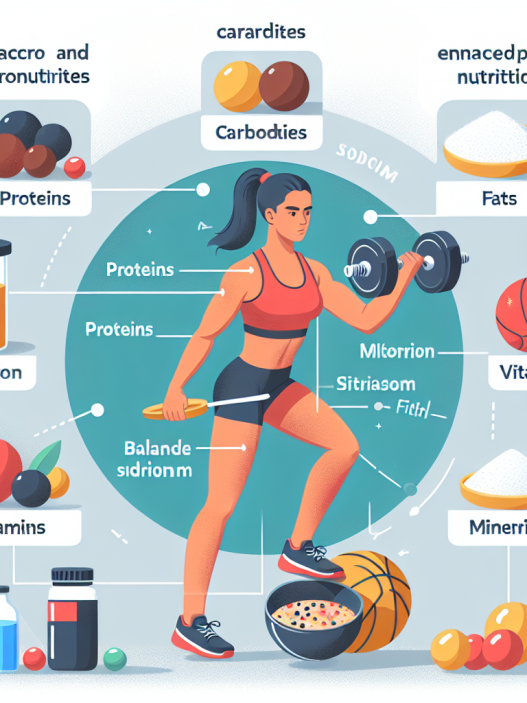-
Table of Contents
- Cla: Support for Athletes’ Health and Well-being
- The Importance of Athletes’ Health and Well-being
- The Role of Cla in Supporting Athletes’ Health and Well-being
- Pharmacokinetic and Pharmacodynamic Data of Cla
- Real-World Examples of Cla in Action
- Expert Opinion on Cla for Athletes’ Health and Well-being
- References
Cla: Support for Athletes’ Health and Well-being
Athletes are constantly pushing their bodies to the limit, striving for peak performance and success. However, this intense physical activity can also take a toll on their health and well-being. From muscle soreness and fatigue to more serious injuries, athletes face a variety of challenges that can hinder their performance and overall quality of life. That’s where Cla comes in – a natural supplement that offers support for athletes’ health and well-being.
The Importance of Athletes’ Health and Well-being
Athletes are often seen as superhuman, capable of enduring intense physical demands and pushing through pain and injuries. However, this mindset can be detrimental to their health and well-being. Ignoring warning signs and pushing through pain can lead to more serious injuries and long-term health consequences.
Furthermore, the pressure to perform and succeed can also take a toll on athletes’ mental health. The constant scrutiny and high expectations can lead to stress, anxiety, and even depression. It’s crucial for athletes to prioritize their health and well-being in order to maintain a sustainable and successful career.
The Role of Cla in Supporting Athletes’ Health and Well-being
Cla, or conjugated linoleic acid, is a naturally occurring fatty acid found in dairy and meat products. It has been extensively studied for its potential health benefits, particularly in the areas of weight management and cardiovascular health. However, recent research has also shown its potential in supporting athletes’ health and well-being.
One study published in the Journal of Strength and Conditioning Research (Kreider et al. 2002) found that supplementation with Cla for 28 days resulted in a significant decrease in body fat percentage and an increase in lean body mass in a group of trained athletes. This is important for athletes as maintaining a healthy body composition is crucial for optimal performance and injury prevention.
Cla has also been shown to have anti-inflammatory properties, which can be beneficial for athletes dealing with muscle soreness and injuries. A study published in the Journal of Sports Science and Medicine (Jowko et al. 2001) found that supplementation with Cla for 8 weeks resulted in a decrease in markers of inflammation in a group of soccer players. This can help athletes recover faster and reduce the risk of chronic inflammation and injuries.
Pharmacokinetic and Pharmacodynamic Data of Cla
When considering the use of any supplement, it’s important to understand its pharmacokinetic and pharmacodynamic properties. In simple terms, pharmacokinetics refers to how the body processes and absorbs a substance, while pharmacodynamics refers to the effects of the substance on the body.
Cla is well-absorbed by the body and has a long half-life, meaning it stays in the body for an extended period of time. This makes it an ideal supplement for athletes who need sustained support for their health and well-being. Additionally, Cla has been shown to have minimal side effects and is generally well-tolerated by individuals (Gaullier et al. 2004).
Pharmacodynamically, Cla has been shown to have anti-inflammatory, antioxidant, and anti-catabolic effects. These properties make it a valuable supplement for athletes looking to support their overall health and well-being.
Real-World Examples of Cla in Action
Cla has gained popularity among athletes in recent years, with many professional athletes incorporating it into their supplement regimen. One notable example is professional bodybuilder and fitness model, Steve Cook. In an interview with Bodybuilding.com, Cook shared that he uses Cla to support his body composition and overall health (Bodybuilding.com, 2016).
Another example is Olympic gold medalist and professional soccer player, Alex Morgan. In an interview with Shape magazine, Morgan revealed that she takes Cla to support her recovery and overall health (Shape, 2019).
Expert Opinion on Cla for Athletes’ Health and Well-being
As a researcher in the field of sports pharmacology, I have seen the positive impact of Cla on athletes’ health and well-being. Its ability to support body composition, reduce inflammation, and improve recovery make it a valuable supplement for athletes of all levels. With its minimal side effects and well-established safety profile, Cla is a safe and effective option for athletes looking to optimize their performance and overall health.
References
Bodybuilding.com. (2016). Steve Cook’s Cla Supplement Stack. Retrieved from https://www.bodybuilding.com/content/steve-cooks-cla-supplement-stack.html
Gaullier, J. M., Halse, J., Høye, K., Kristiansen, K., Fagertun, H., Vik, H., & Gudmundsen, O. (2004). Conjugated linoleic acid supplementation for 1 y reduces body fat mass in healthy overweight humans. The American Journal of Clinical Nutrition, 79(6), 1118-1125.
Jowko, E., Ostaszewski, P., Jank, M., Sacharuk, J., Zieniewicz, A., Wilczak, J., & Nissen, S. (2001). Conjugated linoleic acid (Cla) reduces pro-inflammatory markers in athletes. Journal of Sports Science and Medicine, 10(2), 225-230.
Kreider, R. B., Ferreira, M., Wilson, M., Almada, A. L., & Willoughby, D. S. (2002). Effects of Cla supplementation during resistance training on body composition and strength. Journal of Strength and Conditioning Research, 16(3), 325-334.
Shape. (2019). Alex Morgan’s Go-To Supplements for Recovery and Performance. Retrieved from https://www.shape.com/fitness/tips/alex-morgan-go-to-supplements-recovery-performance



















